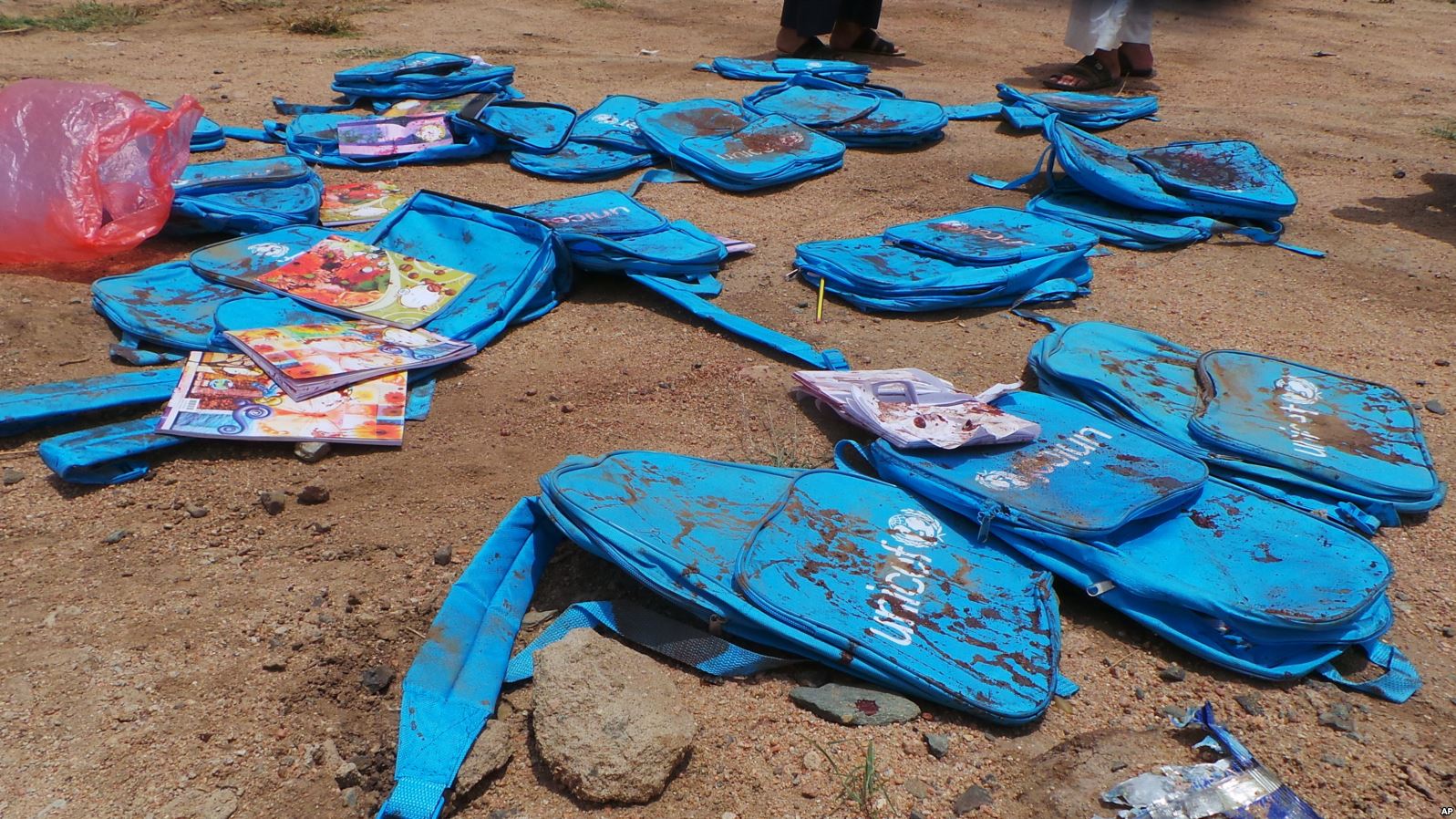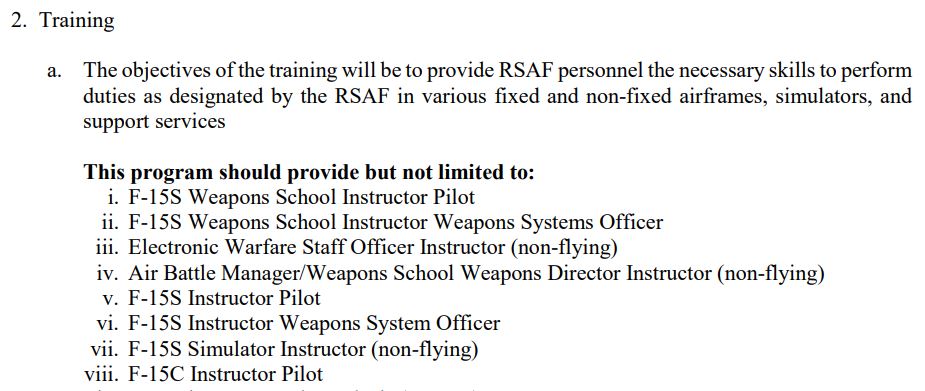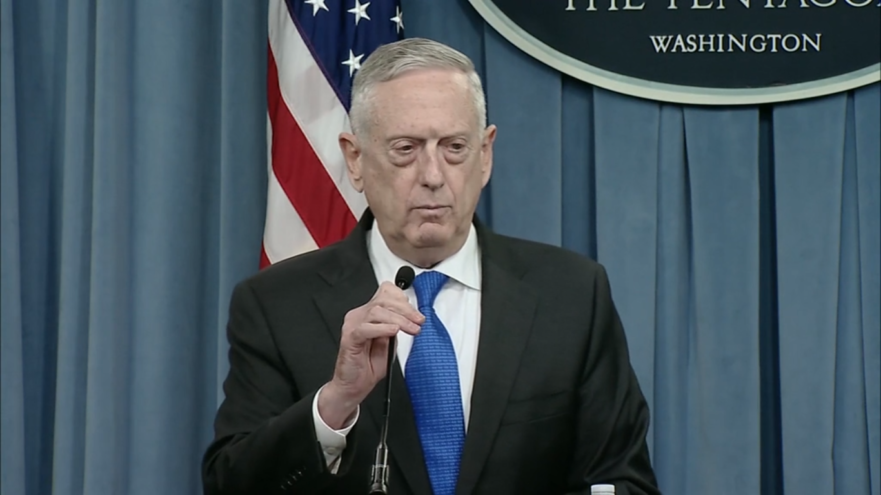Defense Secretary James Mattis calls U.S. support for the Saudi conflict in Yemen “not unconditional” during an Aug. 28, 2018, news conference. (Image: Screengrab of defense.gov video.)
By Ken Klippenstein
The Pentagon is planning to train Saudi Arabian military pilots on US soil, federal documents show, for what appears to be the first time since a Saudi-led coalition intervened in Yemen’s civil war.
Federal procurement documents reviewed by TYT show that the US Air Force is actively soliciting private contractors for training of Royal Saudi Air Force (RSAF) personnel to be “conducted in the U.S. at contractor’s facility.” The solicitation gives potential contractors a response deadline of Sept. 24, but does not indicate when the training will begin.
One human rights advocate called the new training “disturbing.” Saudi Arabia has come under increasing criticism for the conflict in Yemen, which reportedly has left at least 10,000 dead. The war between factions led by Saudi Arabia, the richest country in the region, and Yemen’s Houthi rebels, has driven the population of Yemen, the region’s poorest nation, to the brink of famine. According to Oxfam, 60% of Yemen’s population—some 17 million people—suffer from food insecurity and malnutrition.
The Pentagon has made headlines with its own public critiques of Saudi Arabia, typically one of America’s closest allies. Defense Secretary James Mattis personally warned that the Saudi-led coalition in Yemen is “not unconditional,” and also called on the Saudis to “do everything humanly possible to avoid any innocent loss of life.”

Backpacks and other debris in Saada, Yemen, one day after air strike on school bus. (Image via VOA.)
Following international outrage over several Saudi-led coalition atrocities in Yemen, including an airstrike on a school bus that killed 40 children, the Pentagon warned on Tuesday that it would withhold military and intelligence support if the Kingdom didn’t improve efforts to reduce civilian casualties.
The Pentagon’s solicitation for training Saudi pilots, however, was posted on August 23, two weeks after the school bus bombing, the procurement records show. What’s more, the training will be for warplanes including the F-15 fighter jet, which the Saudis are using in Yemen.
The records even mention weapons-specific training, listing things like, “F-15S Weapons School Instructor Pilot” and “Air Battle Manager/Weapons School Weapons Director Instructor.”

Excerpt from USAF solicitation for contractors to train Saudi military personnel in the U.S.
Informed about the training, Sarah Leah Whitson, executive director for Human Rights Watch’s Middle East and North Africa Division, told TYT, “At a time when even the Pentagon has threatened to cut military and intelligence [support] for Saudi’s disastrous campaign in Yemen, it’s disturbing that the Air Force is ratcheting up its relationship by training more Saudi pilots, however veiled by the use of contractors.”
“Saudi pilots have shown a reckless disregard for human life in the countless atrocities they’ve caused in Yemen; at this point, we need accountability for war crimes, not more training,” Whitson added. The documents do not indicate how many RSAF personnel will be trained, or for how long.
The new training is not the first sign of the Trump administration’s increased affinity for the Saudi regime. Last year, for instance, President Trump signed the largest arms deal in US history with Saudi Arabia, worth $350 billion over the next decade. He also broke with the longstanding presidential tradition of first visiting Canada or Mexico, by instead opting to visit Riyadh.
At the time, human rights experts expressed concerns that Trump’s choosing Saudi Arabia for his first foreign visit, Trump would in effect be green lighting Riyadh’s various rights abuses.
In December of 2016, President Obama suspended certain arms sales to Saudi Arabia, which the administration said was in response to civilian casualties in Yemen. The embargo followed the Saudi-led coalition bombing of a funeral in Yemen’s capital, which drew widespread condemnation.
In March of 2017, Trump’s State Department lifted the arms suspension put in place by the Obama administration. In December, TYT reported that US-made helicopters had been confirmed for the first time as being used by the Saudis in the Yemen conflict. According to a CNN report from earlier this month, the State Department authorized the sale of the bomb that killed 40 children on their school bus.
Ken Klippenstein is a freelance journalist who can be reached on Twitter at @kenklippenstein or via email: [email protected]
Follow TYT Investigates on Twitter, Facebook, and YouTube to stay on top of exclusive news stories from The Young Turks.


Comments
9-11?